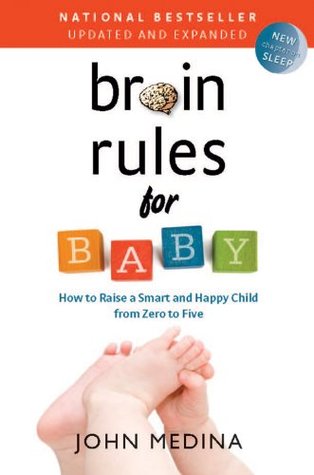More on this book
Community
Kindle Notes & Highlights
Even given this incredible speed, baby brains never make the birth deadline. About 83 percent of synaptogenesis continues after birth. Surprisingly, your baby girl’s brain will not completely finish its wiring until she is in her early 20s. Boys’ brains may take even longer. In humans, the brain is the last organ to finish developing.
By the beginning of the third trimester, a fetus readily displays avoidance behaviors (trying to swim away, for example, when a needle comes near for biopsy). From this we conclude that babies can feel pain, though it is impossible to measure this directly.
There are four nutrients you will want in your behavioral formula, adjusting them as your baby gets older: breast-feeding, talking to your baby, guided play, and praising effort rather than accomplishment.
If you want a well-educated child, you must create an environment of safety.
Write this across your heart before your child comes into the world: Parenting is not a race. Kids are not proxies for adult success. Competition can be inspiring, but brands of it can wire your child’s brain in a toxic way. Comparing your kids with your friends’ kids will not get them, or you, where you want to go.
“The only thing that really matters in life [is] your relationships to other people.”
Authoritative: Just right Responsive plus demanding. The best of the lot. These parents are demanding, but they care a great deal about their kids. They explain their rules and encourage their children to state their reactions to them. They encourage high levels of independence, yet see that children comply with family values. These parents tend to have terrific communication skills with their children.
Verbalizing has a soothing effect on the nervous systems of children. (Adults, too.) Thus, the Brain Rule: Labeling emotions calms big feelings.
Parents who raise kids like my friend Doug, the valedictorian, have this type of courage in spades. They are fearless in the face of raging floods of emotions from their child. They don’t try to shoot down emotions, ignore them, or let them have free reign over the welfare of the family. Instead, these parents get involved in their kids’ strong feelings. They have four attitudes toward emotions (yes, their meta-emotions): • They do not judge emotions. • They acknowledge the reflexive nature of emotions. • They know that behavior is a choice, even though an emotion
...more
These parents understand that kids have a choice in how they express emotions, reflexive though emotions can be. They have a list filled not with emotions that are approved and disapproved but actions that are. And the parents put teeth into it, consistently teaching their kids which choices are appropriate and which are not.
Be willing to enter into your child’s world on a regular basis and to empathize with what your child is feeling.


